Sponsored
The tragedy in Wayanad could have been avoided.
Posted 2024-08-05 04:16:52
0
5K
1/15 The tragedy in Wayanad could have been avoided. Over 400 lives lost, entire villages buried under landslides. The Gadgil Commission warned us. They told us the Western Ghats were fragile, delicate, and that human greed would bring disaster. But we didn’t listen.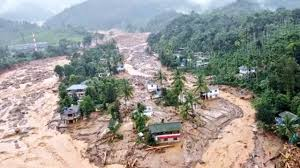

2/15 The Gadgil Commission recommended strict protections for Ecologically Sensitive Zones (ESZ) in the Western Ghats. It proposed banning mining, quarrying, and large-scale construction in these zones to protect the rich biodiversity and prevent environmental catastrophe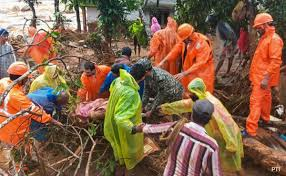

4/15 Wayanad is paying the price. The reduction of safe distances for quarrying from 100 meters to just 50 meters was not just a mistake; it was a death sentence. Hillsides weakened by illegal activities gave way under heavy rains, and entire communities were buried alive.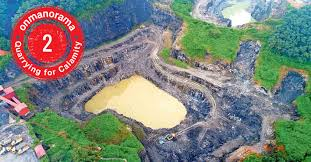

5/15 The Syro-Malabar Church, a powerful force in Kerala, opposed the Gadgil Commission’s recommendations. They argued that the regulations would displace their communities. But was it concern for the people? Or was it about protecting their vast landholdings?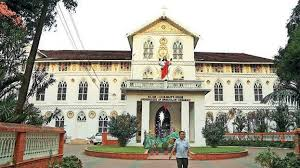

6/15 The Church’s opposition wasn’t just about saving homes; it was about saving their influence, their power. Backed by foreign donations from Catholic Relief Services (CRS) and Pontifical Mission Societies (PMS), with funds flowing in from entities like USAID, they fought against environmental protection.

7/15 The Communist Party of India (Marxist) (CPM) joined the opposition, claiming to protect the livelihoods of the poor. But whose interests were they really protecting? The working class or the industrialists and real estate developers who saw the Western Ghats as a goldmine?

8/15 Industrial and real estate lobbies, hungry for profit, crushed the Gadgil Commission’s proposals. They wanted unrestricted access to the land, to mine it, build on it, exploit it. And they got what they wanted. The Kasturirangan Committee diluted the original recommendations.

9/15 What could have been done? The government could have enforced the Gadgil Commission’s recommendations. They could have protected the Western Ghats, preserved the natural vegetation that acts as a critical buffer against landslides. But they chose profit over protection. 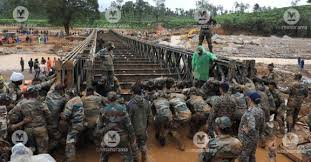

10/15 Illegal quarrying, land grabs, and construction could have been stopped. The criminal nexus between politicians, local officials, and illegal operators could have been dismantled. But instead, they were allowed to flourish, and now the people of Wayanad are paying the ultimate price.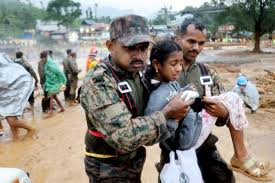

11/15 We didn’t just ignore the warnings; we paved the way for disaster. We allowed greed to triumph over common sense, and now the land itself is rebelling. The Western Ghats are screaming for justice, and the blood of those lost in Wayanad is on the hands of those who looked the other way.

12/15 The rich get richer, while the poor are buried under mud and debris. The Syro-Malabar Church continues its evangelical activities, backed by foreign funds, while the environment and the vulnerable are left to suffer. This isn’t just a failure; it’s a betrayal. 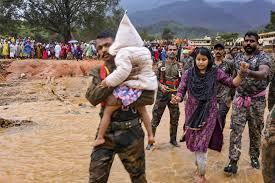

13/15 Wayanad didn’t have to happen. This disaster was not a natural one; it was man-made, born from greed, corruption, and the willful ignorance of those in power. And now, it’s the people who have to live—or die—with the consequences. 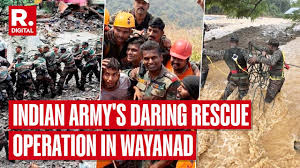

14/15 The concerned MP must act, not just with words, but with real, enforceable actions. The Gadgil Commission’s recommendations must be revived, and the Western Ghats must be protected before more lives are lost. The time for action is now. 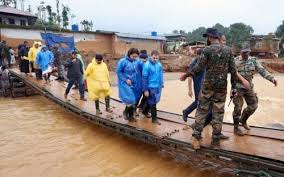

15/15 We owe it to those who perished in Wayanad, to the future generations, and to the very land we live on. We must protect the Western Ghats. We must choose life over profit, sustainability over greed. We must listen to the warnings before it’s too late. 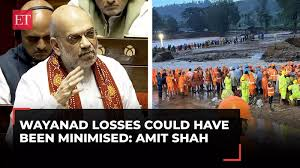

The Gadgil Commission's Recommendations
1. Identification and Protection of Ecologically Sensitive Zones (ESZ)
Recommendation: The Gadgil Commission, formally known as the Western Ghats Ecology Expert Panel (WGEEP), proposed categorizing the entire Western Ghats into three zones based on their ecological sensitivity. The strictest regulations were advised for ESZ-1, areas with high biodiversity, where activities such as mining, quarrying, and large-scale construction should be heavily restricted or banned (The New Indian Express) (Wikipedia).
2. Regulation of Quarrying Activities
Recommendation: The panel recommended a complete ban on quarrying in ESZ-1 and strict regulations for other zones. A minimum distance of 100 meters from human settlements was emphasized for any quarrying activity in less sensitive areas ().
3. Sustainable Development Practices
Recommendation: The Gadgil Commission advocated for sustainable development, involving local communities in decision-making and prioritizing ecological balance over short-term economic gains. The panel urged the government to adopt practices that would protect the fragile ecology of the Western Ghats while allowing for controlled development (The Federal News).
Impact of Ignoring the Gadgil Commission
1. Ecological Degradation
Result: The failure to implement these recommendations has led to rampant deforestation, unregulated quarrying, and illegal construction, particularly in Kerala. The recent Wayanad landslides, which claimed over 200 lives, are a direct consequence of these unchecked activities. The destruction of natural vegetation and the increased soil erosion have exacerbated the frequency and intensity of landslides (The New Indian Express) (Wikipedia).
2. Increased Vulnerability to Disasters
Result: The reduction of safe distances for quarrying to just 50 meters, influenced by political pressure, has further weakened the stability of the land. This negligence led to the collapse of hillsides during heavy rains, as seen in the Wayanad disaster ().
3. Alienation of Local Communities
Result: The aggressive push for development at the expense of environmental protection has led to widespread ecological degradation. The lack of community involvement and the prioritization of industrial interests have alienated local populations, exacerbating the environmental crisis in regions like Wayanad (The Federal News).
Opposition to the Gadgil Commission
1. Syro-Malabar Church
Role: The Syro-Malabar Church was a key opponent of the Gadgil Commission's recommendations, arguing that the proposed regulations would lead to the displacement of local communities, many of whom are part of its congregation. This opposition was driven by concerns over the impact on the Church's extensive landholdings and its ability to expand its religious and educational activities (Wikipedia) (India Today).
Funding and Influence: Supported by international donors like Catholic Relief Services (CRS) and Pontifical Mission Societies (PMS), both funded in part by entities like USAID, the Church leveraged significant foreign contributions to bolster its opposition and maintain its influence in the region (Wikipedia).
2. Communist Party of India (Marxist) - CPM
Role: The CPM, which has significant political influence in Kerala, also opposed the Gadgil Commission, arguing that its implementation would harm the livelihoods of people living in the Western Ghats. The party's stance was rooted in the desire to protect its voter base in these regions, which includes a significant portion of the working-class population involved in agriculture, plantations, and small-scale industries (Wikipedia).
3. Industrial and Real Estate Lobbies
Role: These groups opposed the strict environmental regulations proposed by the Gadgil Commission, fearing that it would restrict development and profit-making activities. Their influence was crucial in the dilution of the report by the subsequent Kasturirangan Committee (India Today).
What Could Have Been Done
1. Implementation of Gadgil's Recommendations
Action: The government could have enforced strict regulations on quarrying, construction, and land use in the ecologically sensitive areas as outlined by the Gadgil Commission. This would have preserved the natural vegetation, which acts as a critical buffer against landslides, thereby preventing tragedies like the Wayanad disaster (The Federal News) (India Today).
2. Crackdown on Illegal Activities
Action: A robust crackdown on illegal quarrying and land grabbing, coupled with strict enforcement of environmental laws, could have mitigated the risk of such disasters. Addressing the criminal nexus between politicians, local officials, and illegal operators would have been crucial in protecting the environment and the people living in these vulnerable regions
1. Identification and Protection of Ecologically Sensitive Zones (ESZ)
Recommendation: The Gadgil Commission, formally known as the Western Ghats Ecology Expert Panel (WGEEP), proposed categorizing the entire Western Ghats into three zones based on their ecological sensitivity. The strictest regulations were advised for ESZ-1, areas with high biodiversity, where activities such as mining, quarrying, and large-scale construction should be heavily restricted or banned (The New Indian Express) (Wikipedia).
2. Regulation of Quarrying Activities
Recommendation: The panel recommended a complete ban on quarrying in ESZ-1 and strict regulations for other zones. A minimum distance of 100 meters from human settlements was emphasized for any quarrying activity in less sensitive areas ().
3. Sustainable Development Practices
Recommendation: The Gadgil Commission advocated for sustainable development, involving local communities in decision-making and prioritizing ecological balance over short-term economic gains. The panel urged the government to adopt practices that would protect the fragile ecology of the Western Ghats while allowing for controlled development (The Federal News).
Impact of Ignoring the Gadgil Commission
1. Ecological Degradation
Result: The failure to implement these recommendations has led to rampant deforestation, unregulated quarrying, and illegal construction, particularly in Kerala. The recent Wayanad landslides, which claimed over 200 lives, are a direct consequence of these unchecked activities. The destruction of natural vegetation and the increased soil erosion have exacerbated the frequency and intensity of landslides (The New Indian Express) (Wikipedia).
2. Increased Vulnerability to Disasters
Result: The reduction of safe distances for quarrying to just 50 meters, influenced by political pressure, has further weakened the stability of the land. This negligence led to the collapse of hillsides during heavy rains, as seen in the Wayanad disaster ().
3. Alienation of Local Communities
Result: The aggressive push for development at the expense of environmental protection has led to widespread ecological degradation. The lack of community involvement and the prioritization of industrial interests have alienated local populations, exacerbating the environmental crisis in regions like Wayanad (The Federal News).
Opposition to the Gadgil Commission
1. Syro-Malabar Church
Role: The Syro-Malabar Church was a key opponent of the Gadgil Commission's recommendations, arguing that the proposed regulations would lead to the displacement of local communities, many of whom are part of its congregation. This opposition was driven by concerns over the impact on the Church's extensive landholdings and its ability to expand its religious and educational activities (Wikipedia) (India Today).
Funding and Influence: Supported by international donors like Catholic Relief Services (CRS) and Pontifical Mission Societies (PMS), both funded in part by entities like USAID, the Church leveraged significant foreign contributions to bolster its opposition and maintain its influence in the region (Wikipedia).
2. Communist Party of India (Marxist) - CPM
Role: The CPM, which has significant political influence in Kerala, also opposed the Gadgil Commission, arguing that its implementation would harm the livelihoods of people living in the Western Ghats. The party's stance was rooted in the desire to protect its voter base in these regions, which includes a significant portion of the working-class population involved in agriculture, plantations, and small-scale industries (Wikipedia).
3. Industrial and Real Estate Lobbies
Role: These groups opposed the strict environmental regulations proposed by the Gadgil Commission, fearing that it would restrict development and profit-making activities. Their influence was crucial in the dilution of the report by the subsequent Kasturirangan Committee (India Today).
What Could Have Been Done
1. Implementation of Gadgil's Recommendations
Action: The government could have enforced strict regulations on quarrying, construction, and land use in the ecologically sensitive areas as outlined by the Gadgil Commission. This would have preserved the natural vegetation, which acts as a critical buffer against landslides, thereby preventing tragedies like the Wayanad disaster (The Federal News) (India Today).
2. Crackdown on Illegal Activities
Action: A robust crackdown on illegal quarrying and land grabbing, coupled with strict enforcement of environmental laws, could have mitigated the risk of such disasters. Addressing the criminal nexus between politicians, local officials, and illegal operators would have been crucial in protecting the environment and the people living in these vulnerable regions
Sponsored
Search
Sponsored
Categories
- Political Leaders
- Art & Crafts
- Dance & Music
- Sanatan Dharma
- Education & Training
- Food & Drinks
- Gaming
- Health & Fitness
- Home & Gardening
- Literature & Culture
- Love
- Medicine & Ayurveda
- Motors & Vehicles
- Movies & Cinema
- Parenting
- Politics
- Science & Technology
- Shopping
- Social Media
- Spirituality
- Sports
- War & History
- Yoga & Meditation
- Travel & Tourism
- Natural Disaster
- Business & Startups
- DIY & Home Decor
- Finance
- Personal
- News
- Pet Lovers
- Wild Life & Nature
- Podcast & Audio Books
- Poetry
- Law & Order
- Moral Stories
- Jokes & Humour
- Other
Read More
The biggest football tournament for the Nepali community in the UK
In London, the 21st edition of the Gorkha Cup, the biggest football tournament for the Nepali...
20 News Headlines from Nepal - October 3, 2024
1. Nepal Disaster Death Toll Climbs to 242, 22 Still Missing
With the death toll rising to 242...
Tragic Incident Involving Burst Balloon: Childhood Joy Turned Into Grief
In the enchanting town of Amroha, where the simple pleasure of playing with balloons often brings...
How Can We Stop Supari Killings? Addressing Organized Crime and Contract Killings
Introduction
Supari killings, or contract killings, are a grave issue that continues to plague...



